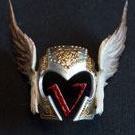poetry Poetry Prompt 20 – Found Poetry
-
Similar Content
-
- 5 comments
- 104 views
-
- 2 comments
- 130 views
-
- 1 comment
- 112 views
-
' Live-Poets Society ' – A Corner For Poetry 1 2 3 4 150
By AC Benus,
- poetry
- poetry prompts
- (and 1 more)
- 3,726 replies
- 170,859 views
-
- 3 comments
- 152 views
-





Recommended Posts
Create an account or sign in to comment
You need to be a member in order to leave a comment
Create an account
Sign up for a new account in our community. It's easy!
Register a new accountSign in
Already have an account? Sign in here.
Sign In Now